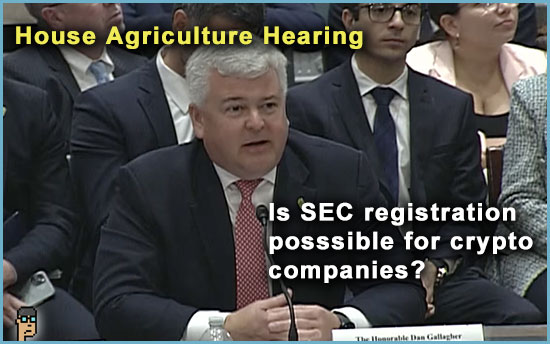Securities Exchange and Commission (SEC) Chair Gary Gensler has often said in the media that aspiring, well-regulated crypto companies should “come in” and “register” with the SEC.
See his speech in September 2022, for example.
But, how does that really go? Rep. John Rose (R, TN) wanted to know.
During the second panel of the day for House Agriculture’s digital assets hearing, “The Future of Digital Assets: Providing Clarity for Digital Asset Spot Markets,” Rose asked Dan Gallagher, Chief Legal Compliance and Corporate Affairs Officer, of Robinhood Markets, to discuss his own company’s pro-active registration attempt with the SEC for its crypto product:
“We actually came in and we did it proactively. We weren’t being investigated by the SEC. And we did it just because he wanted folks to do it. We thought it was good for our business and our customers. We went through a 16-month process of trying to register a special purpose broker dealer. And then we were pretty summarily told in March [of this year] that that process was over and we would not see any any fruits of that effort.”
“Now, one of the barriers that was raised in the discussions was the need to fix the what is called the ’33 Act disclosure – so the issuer disclosure deficiency that the SEC views as being present in crypto markets. For us as an agency broker to fix a perceived issuer disclosure issue is impossible. We can’t control the actions of third-parties and so by laying out that one issue you know, [it] became a very high hurdle to pass and that’s why I admire the construct [in the proposed market structure bill].”
“Today that would get us quickly past that issue of the SEC registration status of the issuer.”
Rep. John Rose (R, TN) inquired about the current status of Robinhood’s crypto product registration with the SEC.
Gallagher responded, “I believe … the technical term would be DOA.”

